Are cryptocurrencies just a commodity money, yet another financialization of the real economy, or do they represent an inevitable evolution of an increasingly liquid and interconnected world?
Are cryptocurrencies the tangible sign that computers and sophisticated artificial intelligences are providing less manipulable and safer systems or, on the contrary, are they a tool that can be easily used by those who want to evade controls and rules?
Interrogatives, analysis and comments from a world that is still developing to understand if a spectrum or an opportunity is wandering in the new globalized world.
Milan, March 15, 2018 – What are the positive aspects and what the potential risks of the cryptocurrency system in a world where against a bitcoin user base in exponential growth numerous questions arise about possible defiance crises and liberalization of monetary policies. These were some of the themes explored at the Pesenti Foundation conference, dedicated to digital currencies.
The 2018 annual event of the Pesenti Foundation was staged this year in Milan, after the start of an important collaboration with the Corriere della Sera Foundation, aiming at promoting a series of debates and meetings on current topics of interest. This commitment is in line with the Foundation renewed mission focused on innovation and the endorsement/support of business projects with a strong social impact to inspire and educate new generations of entrepreneurs.
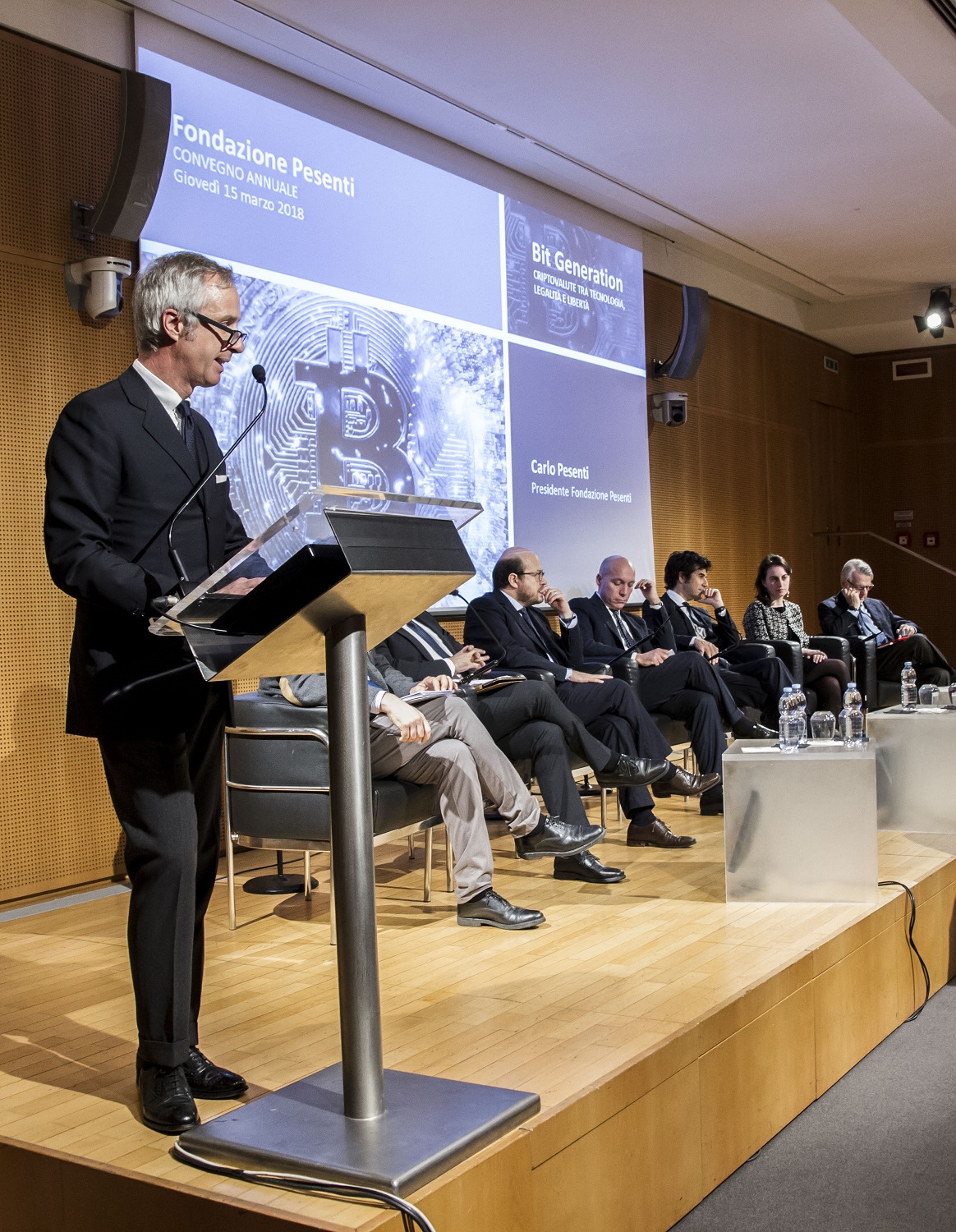
The conference wanted to examine the “bitcoin phenomenon” in its oscillation between euphoria from profits and frustration of those who didn’t invest, between praise of a new perspective and blame for possible illegal activities. But the debate also focused on the blockchain—the incorruptible digital ledger of cryptocurrencies transaction–to analyze how this new horizontal vision can offer a disintermediation solution and with what effects.
High-profile guest speakers discussed the future of the crypto industry and its potential impact on activities from economics to civil values, from the role of the State to economic policies implemented through money supply.
The debate—moderated by Nicola Saldutti, Corriere della Sera’s Economics Editor—was introduced by Carlo Pesenti, President of the Pesenti Foundation, that brought greetings from Piergaetano Marchetti, President of the Corriere della Sera Foundation, “The Pesenti Foundation continues the tradition of holding its annual roundtable discussion related to key economic and social issues of today and tomorrow. This convergence of interests between the Pesenti Foundation and the Corriere della Sera Foundation paved the way for a collaboration that we hope will develop a range of initiatives in the future. Thanks again to you, Mr. Pesenti, to the Foundation, to our illustrious guests and my best wishes for successful work.“
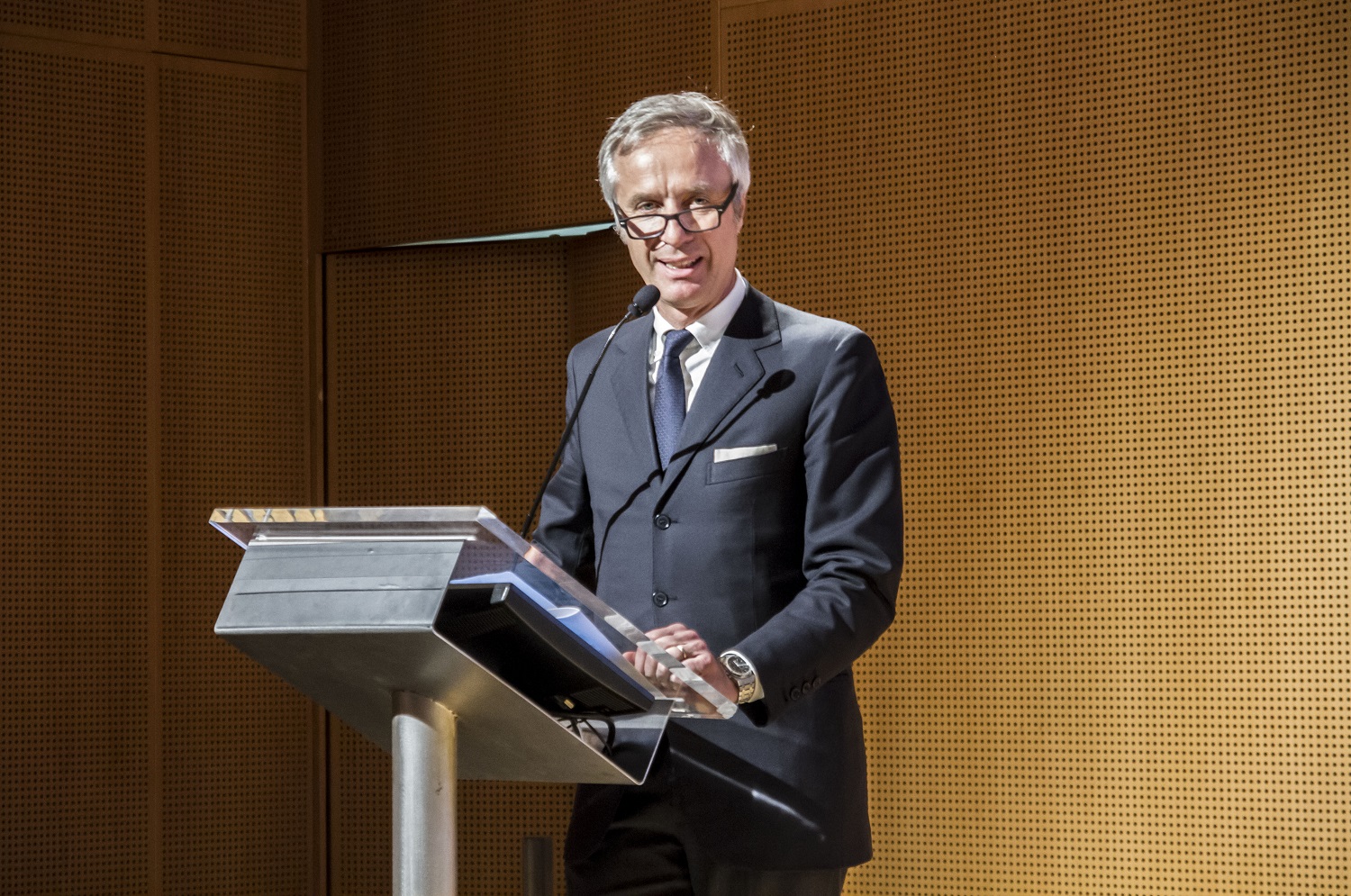
“Over the years, the Pesenti Foundation has initiated and supported numerous cultural, educational and charitable initiatives–underlined Carlo Pesenti, President of the Foundation and Managing Director of the holding Italmobiliare Spa–strengthening partnerships with Italian and foreign universities with special attention to the new generations and impact investing projects with positive and sustainable social outcomes. Among its major initiatives is the annual conference, which takes place this year for the first time in Milan, in this ‘house’ that has played and continues to play a key role in the democratic life of our country.”
“The bitcoins—Nicola Saldutti began–have existed for almost 10 years and we are still wondering about their impact. If we start by examining the word “bitcoin” which contains both the meaning of information and money, immediately the following questions arise: what is the value of information as a projection of purchases? Are cryptocurrencies frightening the credit cards? And yet, what is the difference in the speculative approach of those who invest in bitcoins and those who invest on the traditional market, thus nonetheless financing the real economy?
Nicola Saldutti, Corriere della Sera’s Economics Editor
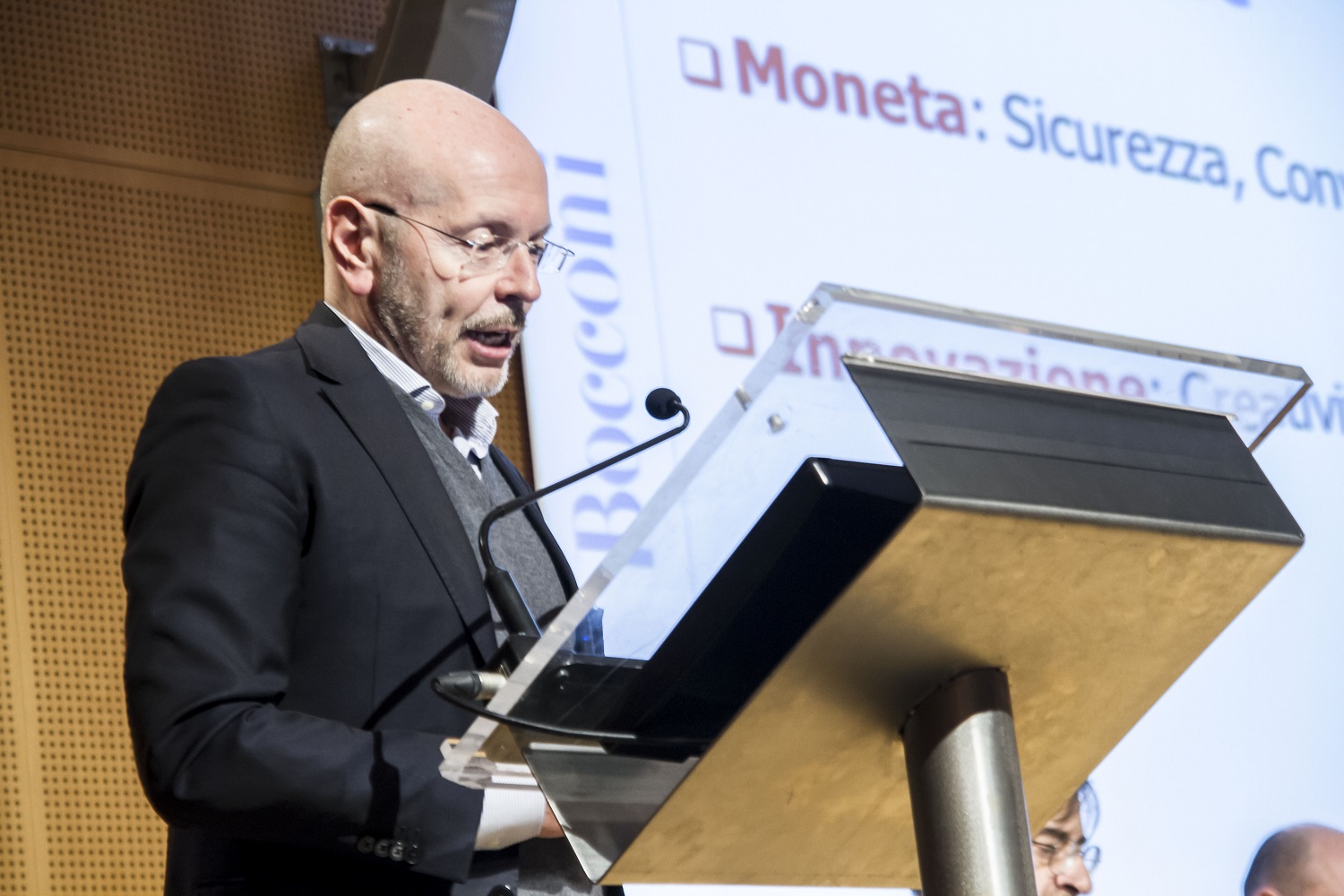
In his opening speech Donato Masciandaro, Full Professor of Political Economy at the Bocconi University in Milan, framed the cryptocurrency phenomenon focusing on the dualism between currency and innovation: “Bitcoin as a currency. The first property we usually look for in a currency is security. Secondly, currencies must be a reserve of value and this value must be secured by people not bedeviled by short-term political problems, hence the control of money supply by central banks. The third characteristic of money is its capacity of transmitting information: how much does a currency tell about us? There is always a physiological aspect of ‘right to privacy’, but also a pathological aspect of ‘shadow economy’ hiding crimes and misbehavior, which used as a recycling tool becomes a multiplier in economic, financial, social and political terms. This phenomenon should not be associated simply with crime, but also with illegality, evasion and underground economy.”
The second part of the dualism is: “Bitcoin as innovation. Bitcoin introduces a new way to create transactions without a centralized regulatory authority or guarantor: here the guarantors ‘emerge from below’; they are the so-called ‘miners’ who invest in technological content and are rewarded with bitcoins, thus generating a decentralized system.” Professor Masciandaro concluded his presentation by raising some open questions for discussion: “Bitcoin: relevant innovation? Technology: is it true efficiency? Information: is it true privacy? Is it necessary to regulate?”
The Conference saw the participation of prominent authorities in the fields of finance and the payment system, such as Paolo Bertoluzzo, Nexi CEO, and Guido Maria Brera, writer and cofounder of the Kairos Group.
“It is important to distinguish between blockchain and bitcoin–Paolo Bertoluzzo noted–Blockchain is a new technology of distribution of value certification that will bring, as happened in the past for the Internet, a series of intrinsic benefits and will have multiple applications, obviously requiring regulations. I think in particular to the critical diffusion of fake values, such as the internet’s fake news problem. Bitcoin, on the other hand, has been and continues to be a tool for investment and speculation, but I believe that its efficacy as a means of payment has yet to be demonstrated.”
Paolo Bertoluzzo, Nexi CEO
“The birth of bitcoin–adds Guido Maria Brera—must be sought in the crisis affecting a part of the financial system linked to the central monetary authority. It was then that Satoshi Nakamoto [the virtual currency’s pseudonymous inventor] created the horizontal currency. Up to now, we have on the one hand a vertical monetary authority that intervened to save the currency, and on the other hand a horizontal system: the bitcoin, a medium of exchange, which however served to finance the blockchain. In conclusion, I believe that bitcoin will increasingly be a store of value, but vertical monetary policy will continue to exist as well. All the same, I think that all this has led to a significant progress, to a ‘real’ system, which is represented by the blockchain itself.”
Guido Maria Brera, writer and cofounder of the Kairos Group
Journalist Ferruccio de Bortoli and Fabio Di Vizio, Deputy Prosecutor at the Florence Municipal Court and one of the most expert magistrates on evasion and money laundering, outlined a possible balance between protection of privacy rights and freedom, and the undeniable risks of pathological consequences of the cryptocurrency phenomenon.
Ferruccio de Bortoli wondered about the success and the fascination surrounding the phenomenon: “The cryptocurrency industry is on the frontier of innovation and therefore is a synonym of modernity and, like any pioneering project, is not free from a certain risk. Secondly it is nurtured by the mystery that surrounds this phenomenon, and that sometimes leads us to accept a challenge before understanding and analyzing it in depth. In a peer-to-peer system all participants act as equals trusting a system which is, in fact, horizontal.” De Bortoli also underlined that this is a phase where actually “a variety of future technologies are being tested. Cryptocurrencies will be a way to head into a new territory, moving towards the use of digital money.”
Ferruccio de Bortoli, Journalist
Fabio Di Vizio analyzed the bitcoin phenomenon from a legal and regulatory perspective: “Virtual currencies develop in so far as they are far from public regulation, even if the present situation is evolving thanks to the anti-money laundering and the tax monitoring legislations, imposing the data collection of customers and purposes of the transactions. Legally speaking, however, bitcoins are definitely not a currency. It’s not a payment instrument either, nor a traditional financial instrument. In practice, even from a legal perspective, to date, we do not know how to call this phenomenon.” And he concludes: “At present, the rules of the game have not been written yet, but the more cryptocurrencies gain market share in the real-world economy, the more interconnections with the traditional financial systems they can build, and the more likely the need for regulation becomes pressing.“
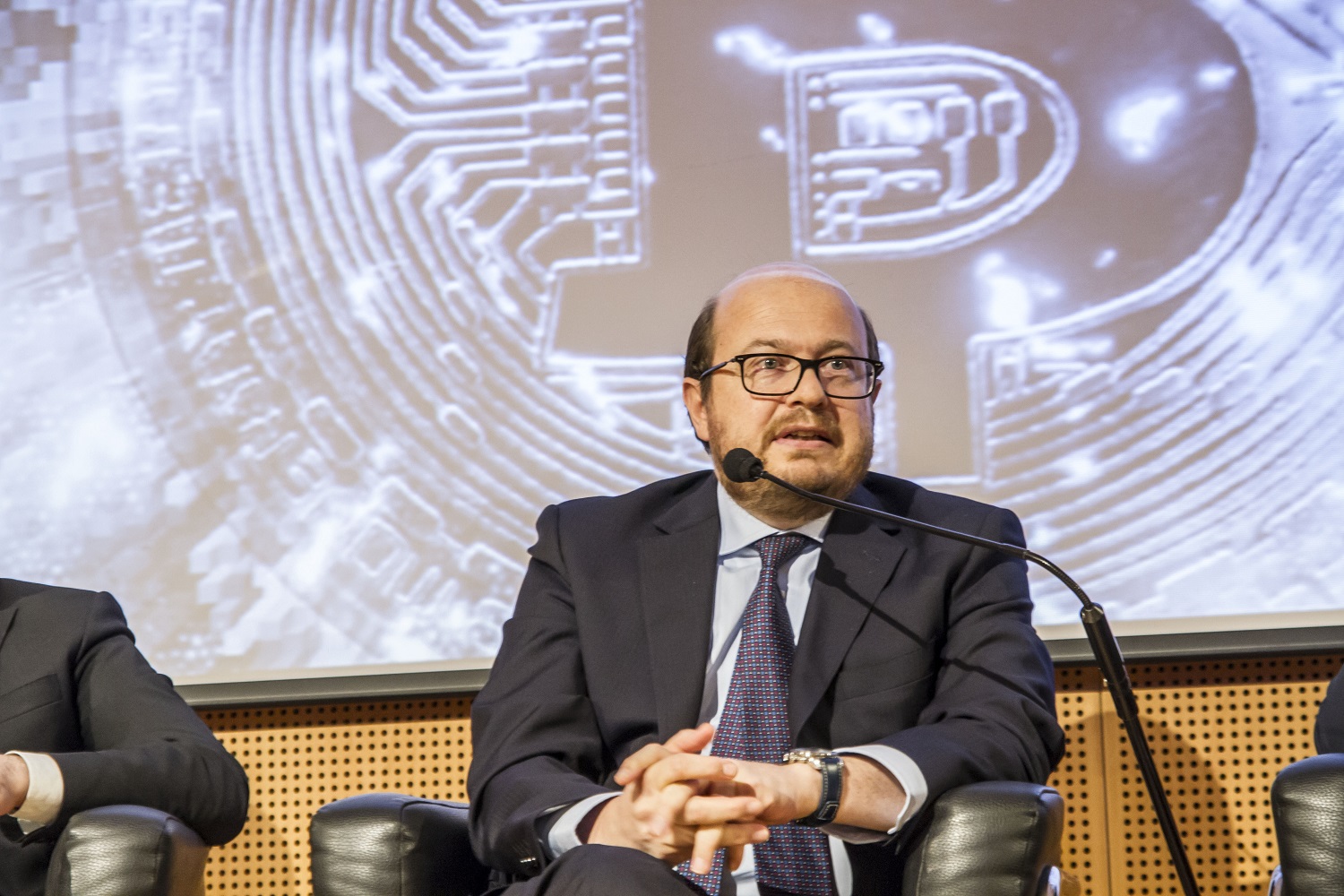
Fabio Di Vizio, Deputy Prosecutor at the Florence Municipal Court
Raffaele Mauro, Managing Director of Endeavor in Italy (a global organization that selects and supports entrepreneurs and companies with high growth potential worldwide), and Valeria Portale, Director of the Blockchain & Distributed Ledger Observatory, Milan Polytechnic, provided an overview of the Italian scenario, trying to define if these first experiences really have the potential to impose a new business model.
Valeria Portale answered some of the questions Saldutti asked: “Can we trust the blockchain? What are the potential and the criticality of this tool?”
“The blockchain is part of the Distributed Ledger family, e.g. a database shared across multiple nodes in a self-regulating network ensuring transaction integrity, with no need for a central certifying authority. What the Internet cannot guarantee. So, if we rethink this application not only with regard to economic transactions, but also in association with certification programs we can understand that the potential is infinite. Since there’s no need for third-party certification bodies, we are going to change the paradigms we have been using, obviously facing some key regulatory challenges, given the intangible and supranational nature of the phenomenon.” But it suggests a reflection: “No doubt, obvious weaknesses and unfairnesses lie ahead, yet many opportunities as well, if we consider the vast potential of programmable money or time and/or purpose restrictions. It will be interesting to see how things will develop over the coming years.”
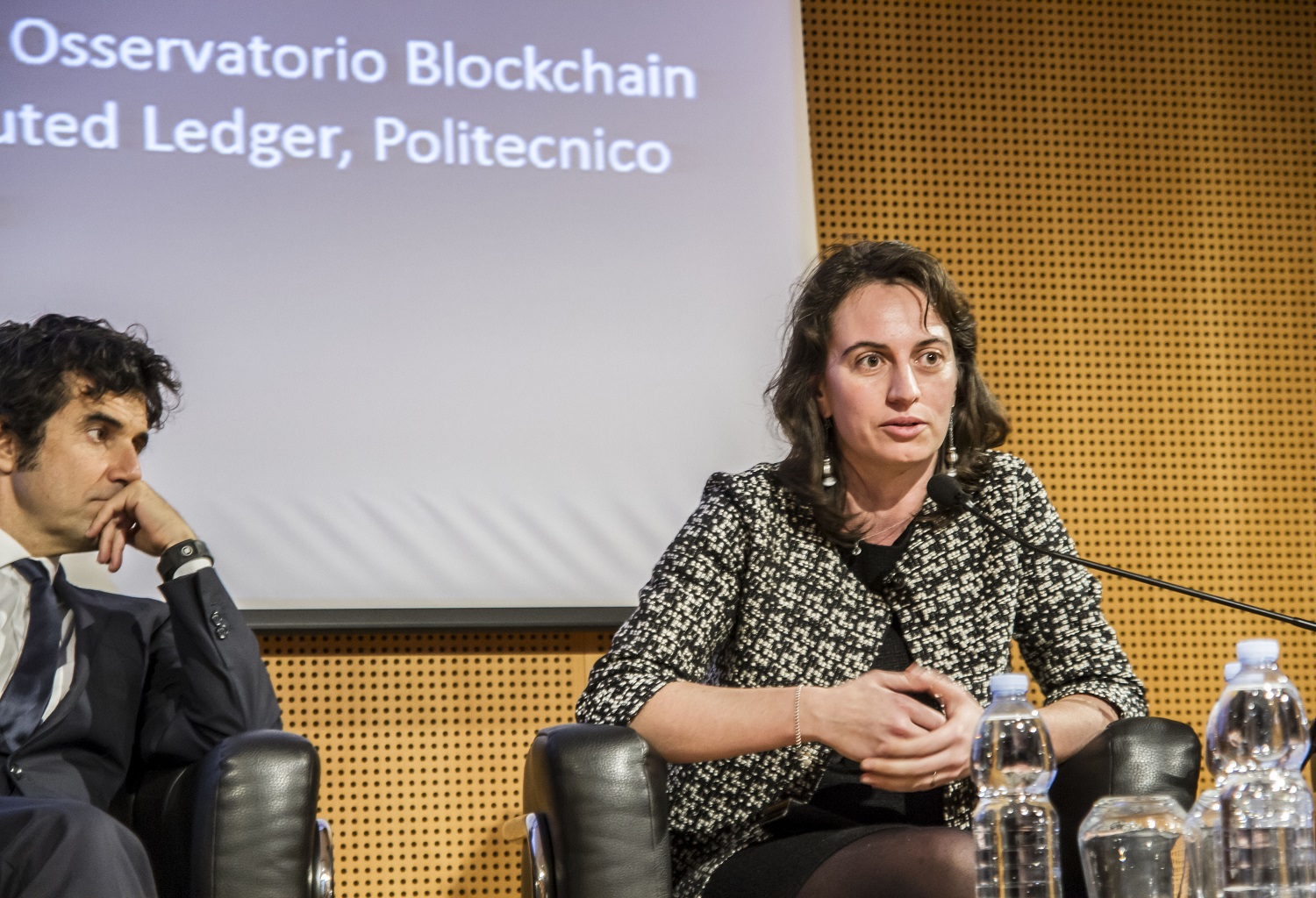
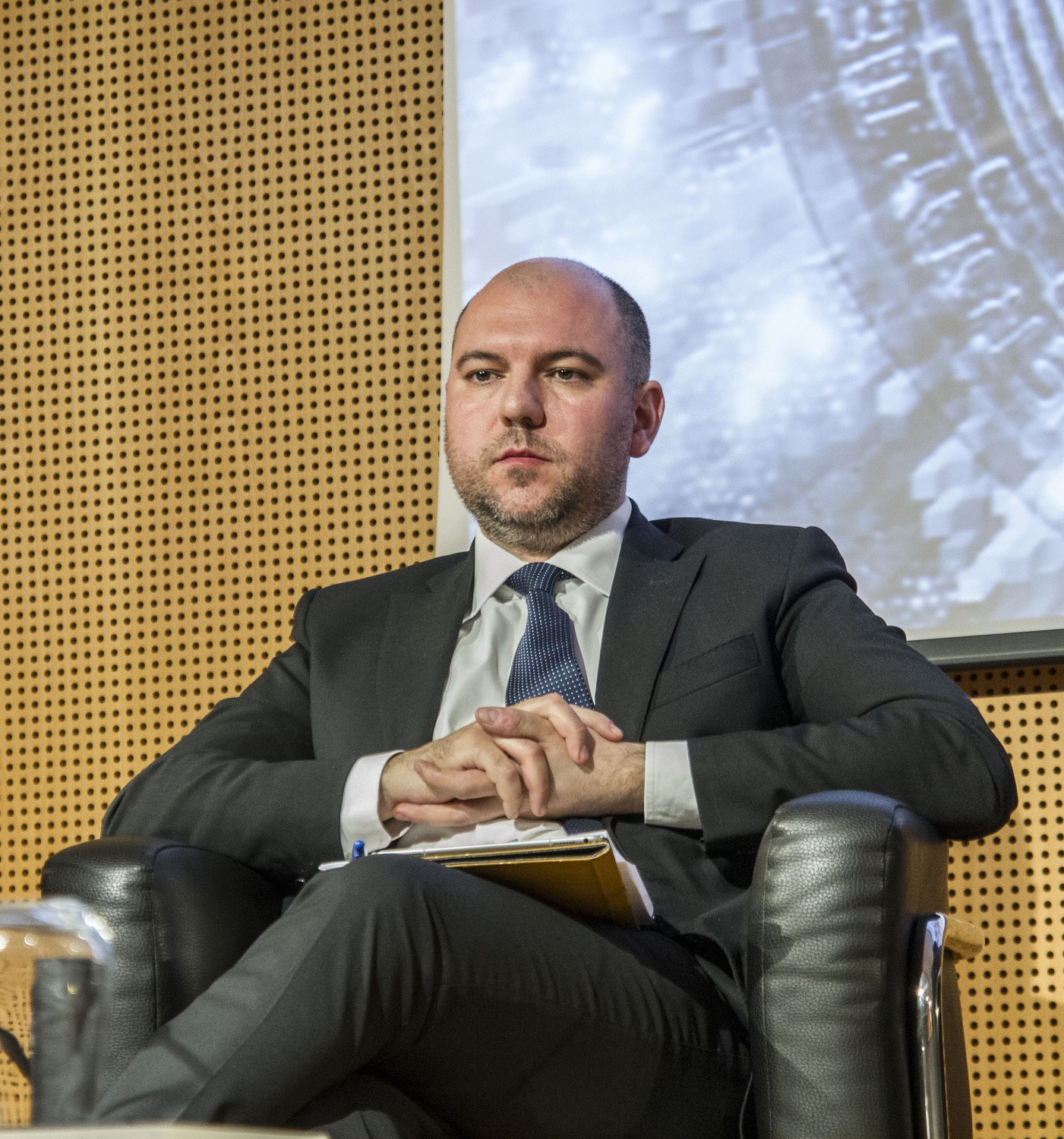
Finally, Raffaele Mauro explained how this phenomenon can change the way of doing business: “When speaking of bitcoins, we realize that the bitcoin system has grown over time in terms of resilience and scalability, with no major investor involved, no real regulation, no venture capital. There is something deeply interesting in all this.
How companies are approaching the cryptocurrency system, how are they catching up with this innovation and with what objectives? First, there are the traditional businesses that open up to this world, using bitcoins for transactions. Second, there are a number of companies that have built crypto ecosystems to introduce these new technologies to the public. And third, there are the ICOs (Initial Coin Offerings), which allow entrepreneurs to self-finance their projects. I would suggest focusing on where these dynamics point, rather than on the dynamics themselves. It is certainly necessary to pay attention to the fundamental question of legality, but it is also important to recognize the great democratic and innovative value of cryptographic technologies. What we must do today is to invest in training and research and then build the pillars of our future economic growth. “
PROGRAM
WELCOME
CARLO PESENTI, President of the Pesenti Foundation
OPENING ANALYSIS
DONATO MASCIANDARO, Full Professor of Political Economy at the Bocconi University in Milan
ROUND TABLE
Moderator
NICOLA SALDUTTI, Corriere della Sera’s Economics Editor
PAOLO BERTOLUZZO, Nexi CEO
GUIDO MARIA BRERA, writer and cofounder of the Kairos Group
FERRUCCIO DE BORTOLI, Journalist
FABIO DI VIZIO, Deputy Prosecutor at the Florence Municipal Court
VALERIA PORTALE, Director of the Blockchain & Distributed Ledger Observatory, Milan Polytechnic
RAFFAELE MAURO, Managing Director of Endeavor in Italy
Presentation of Donato Masciandaro Professor
Presentation of Fabio Di Vizio Deputy Prosecutor
Gallery
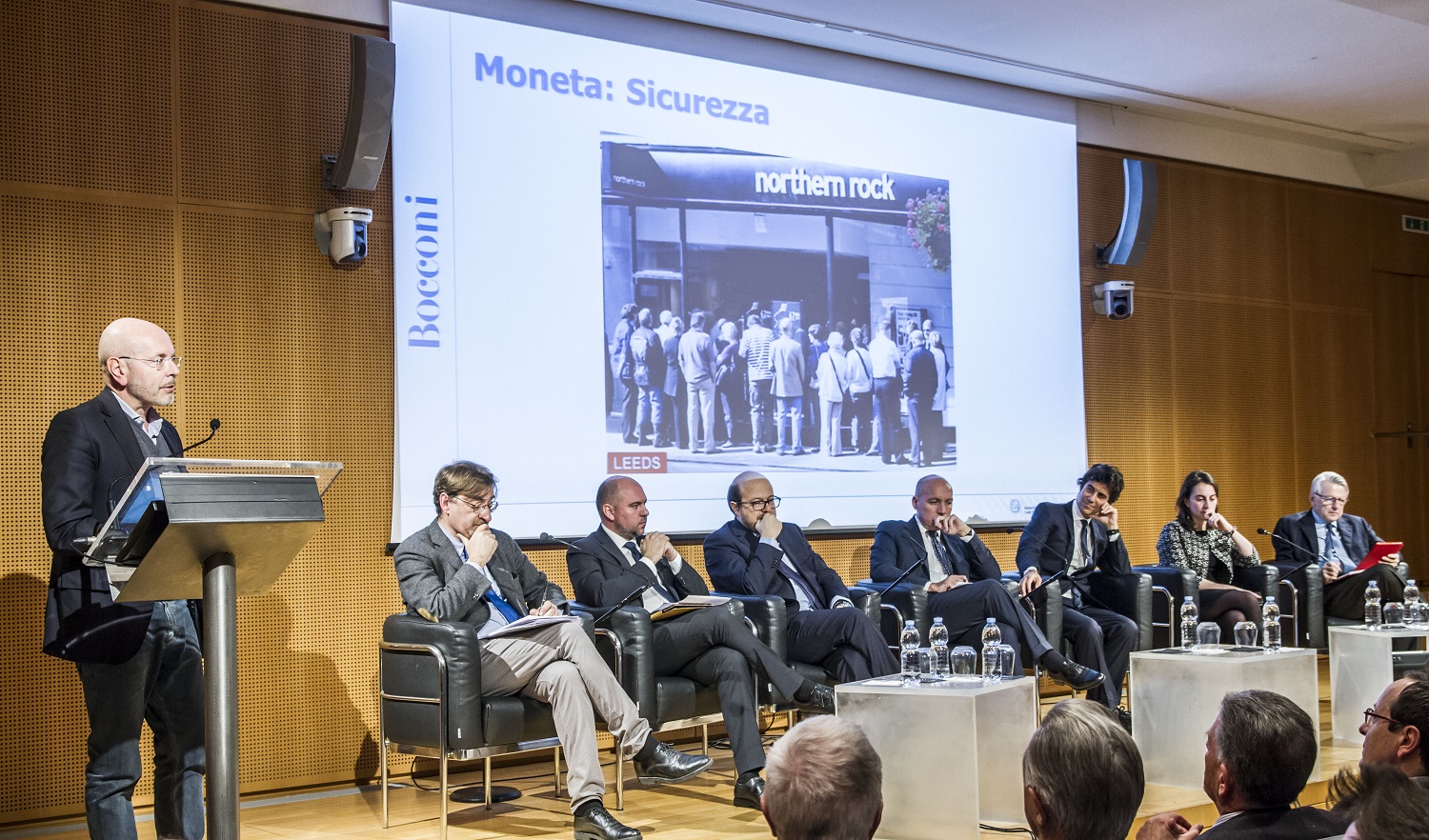
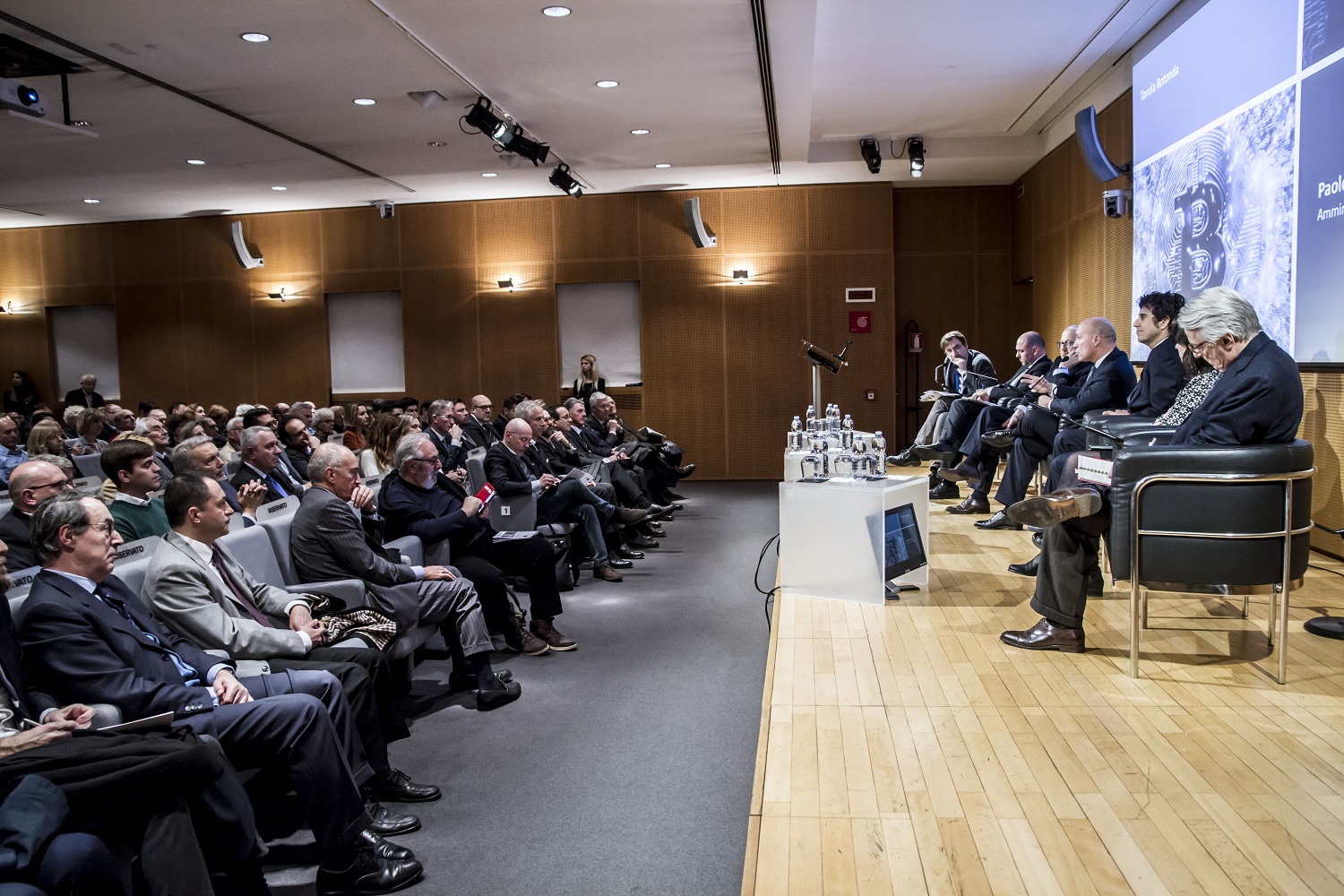
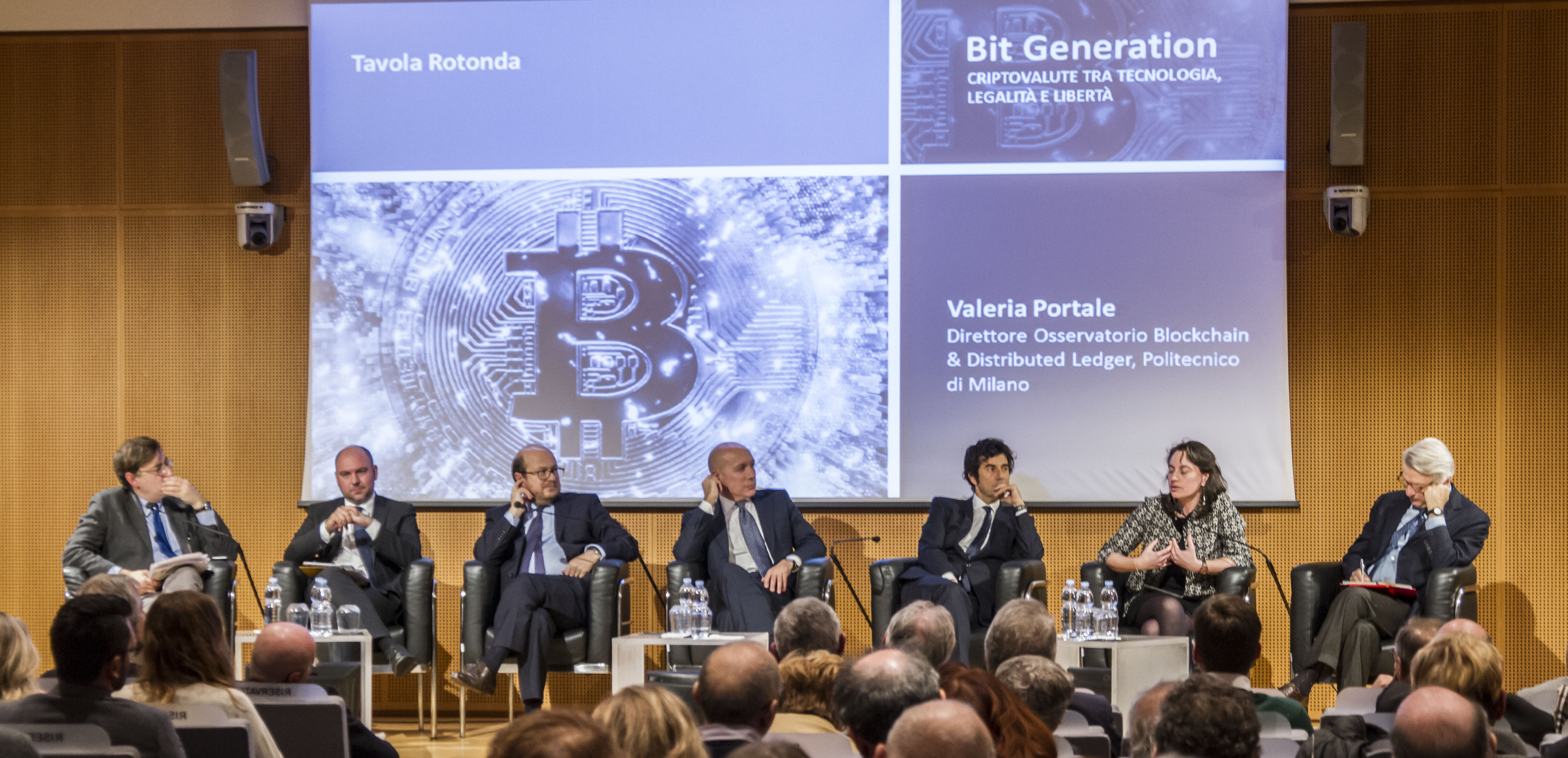
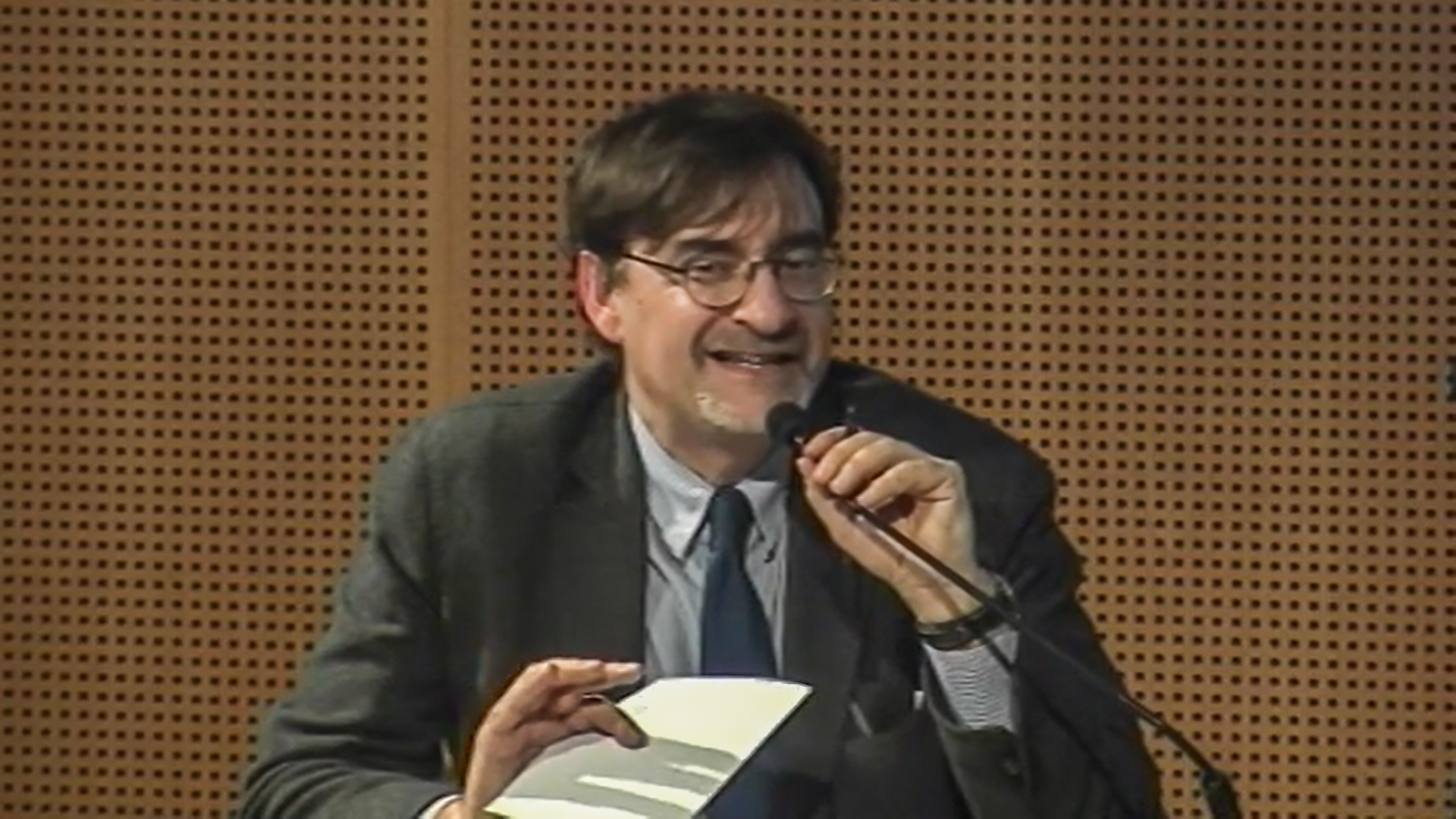
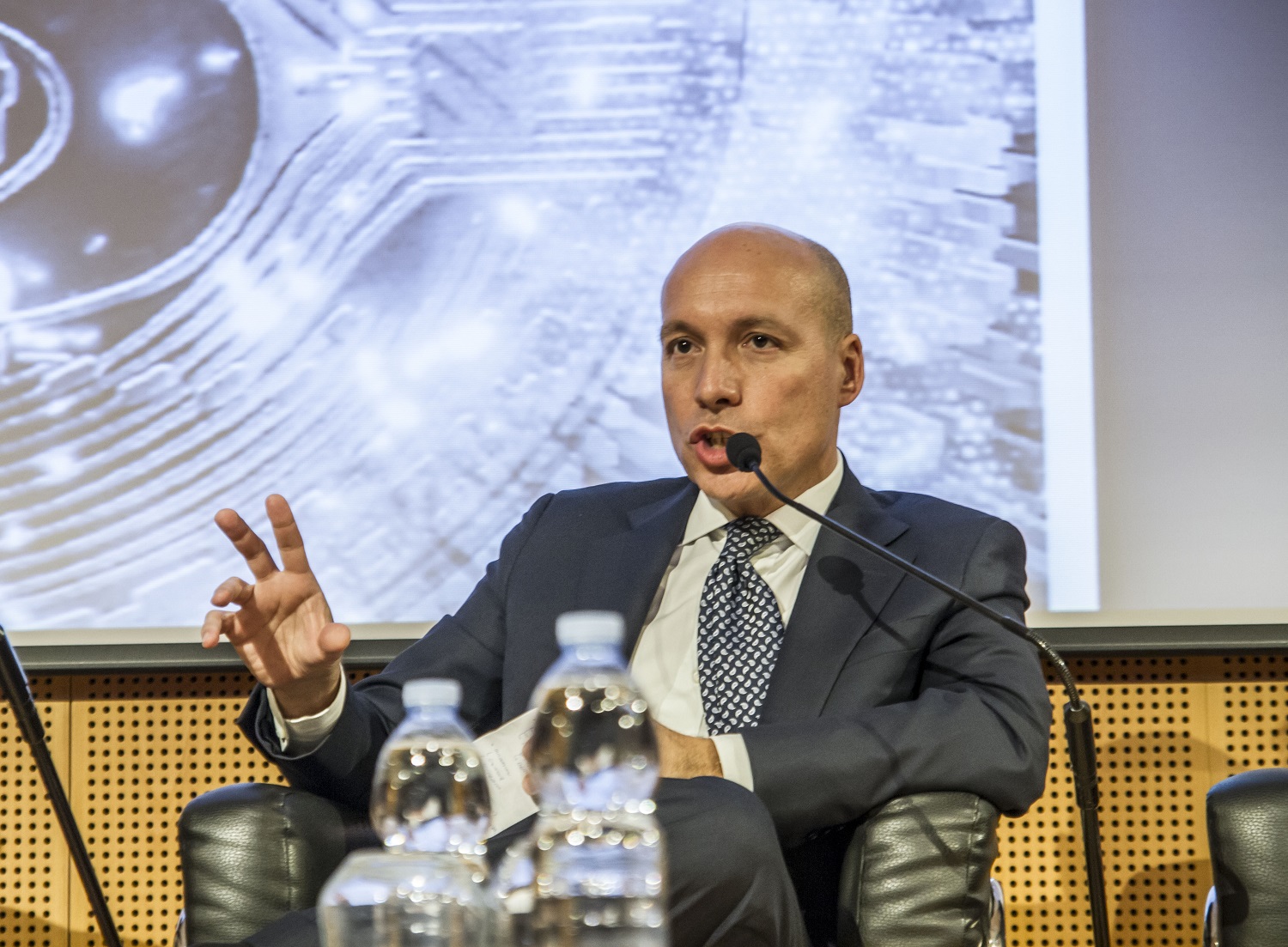
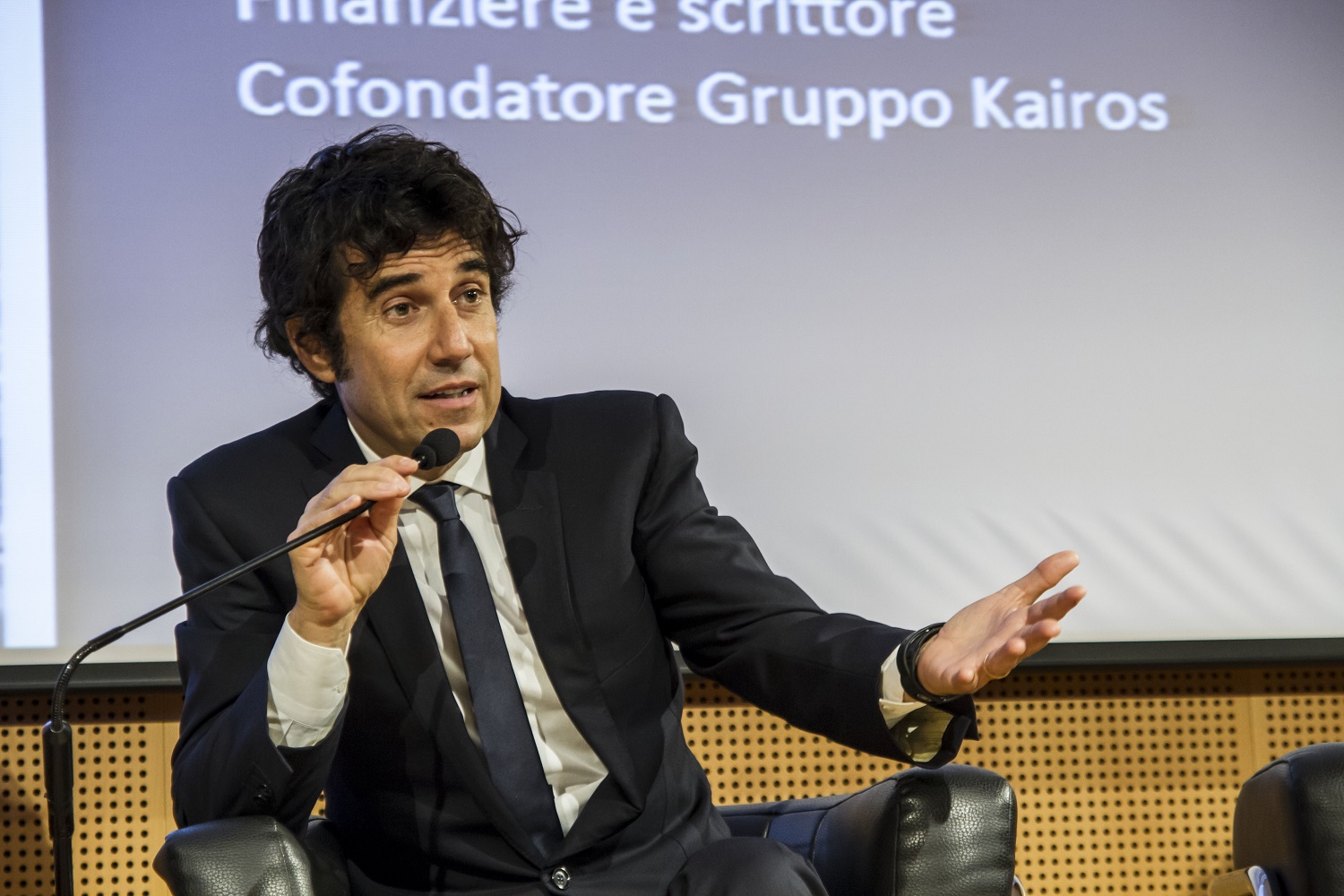
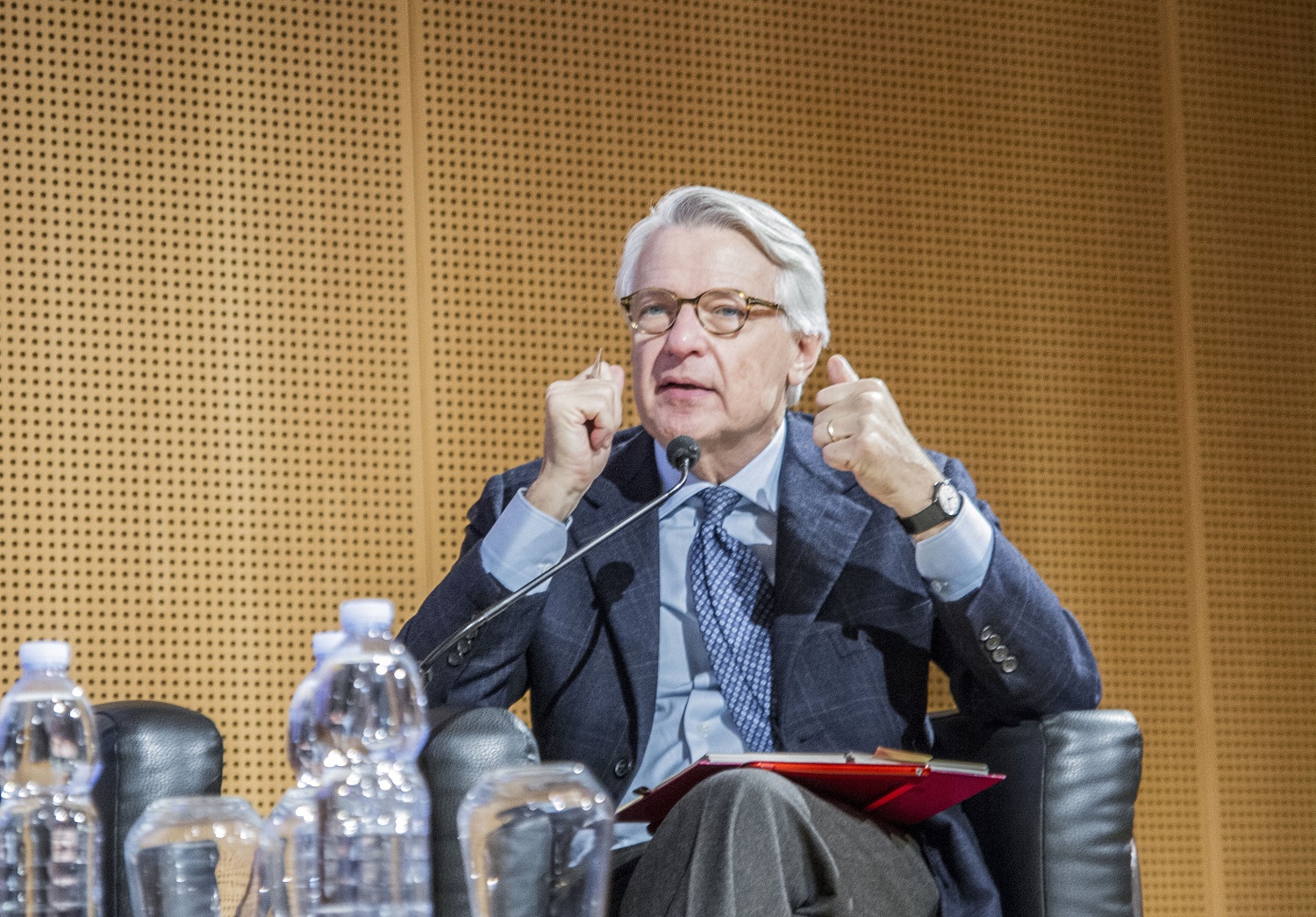
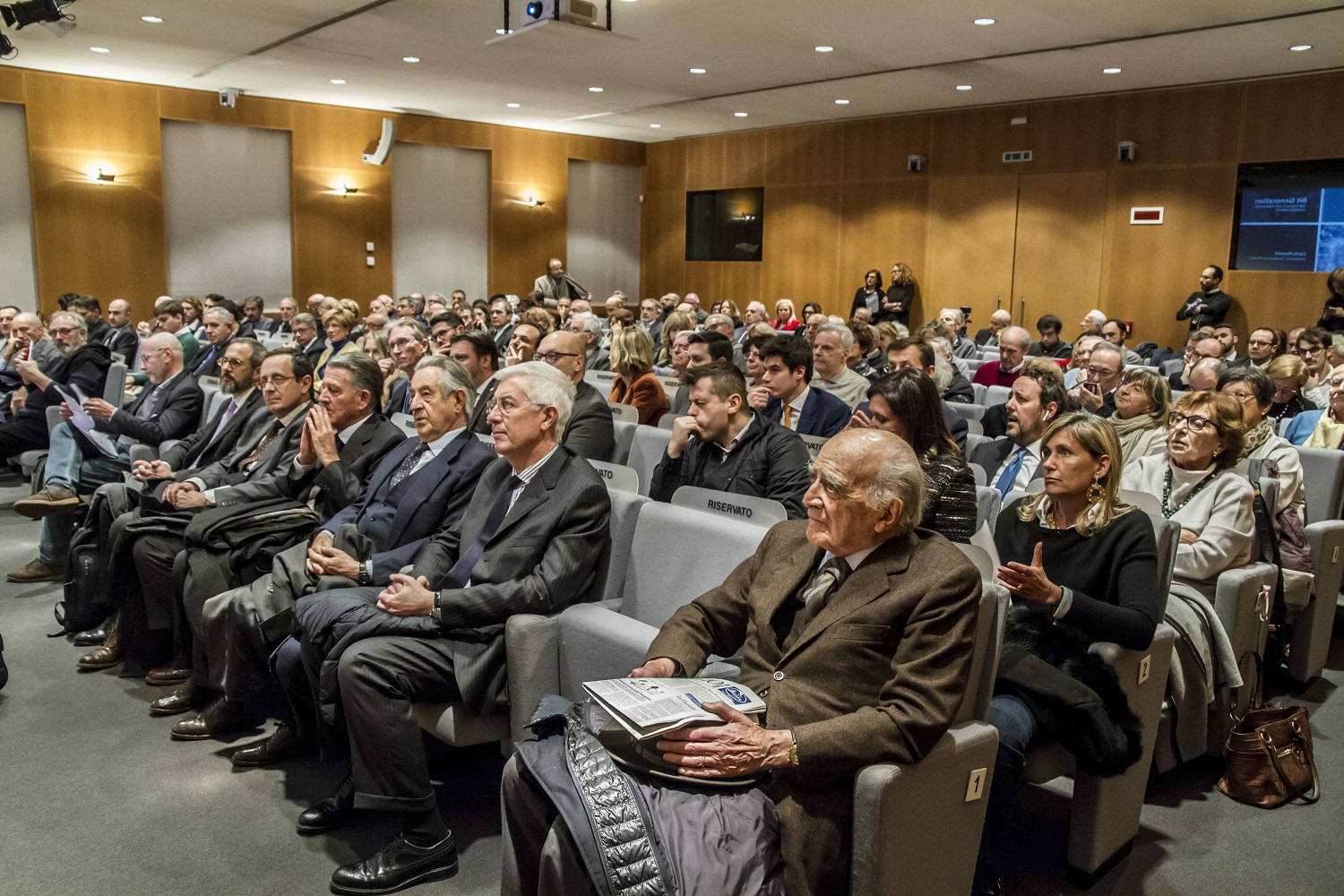
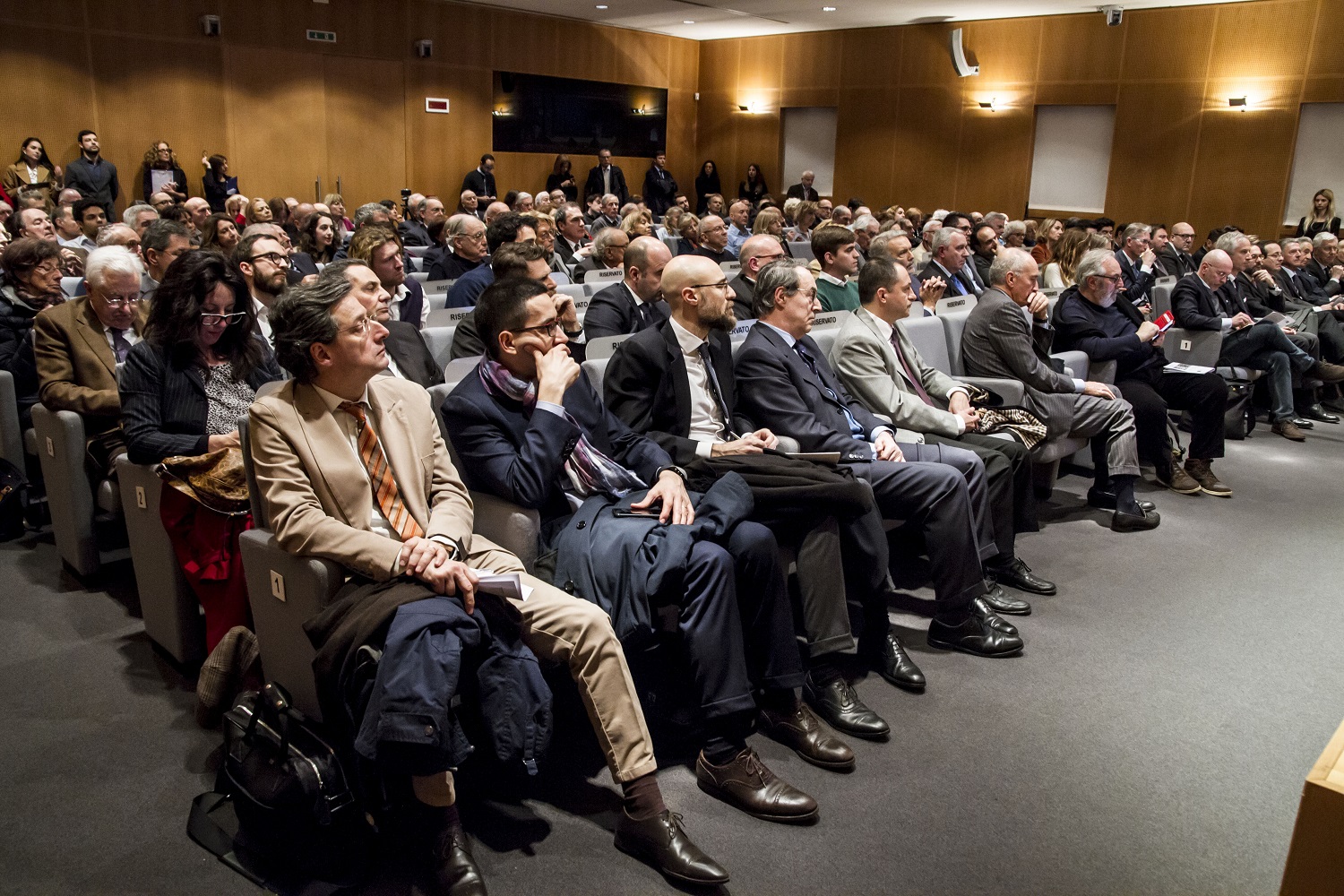
Reply